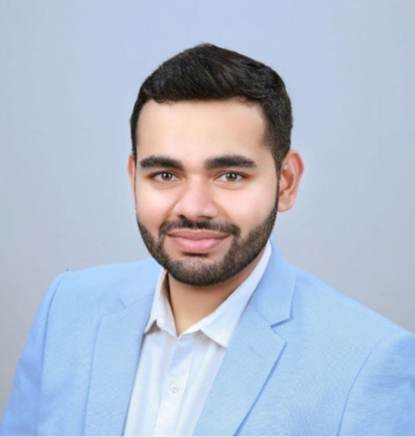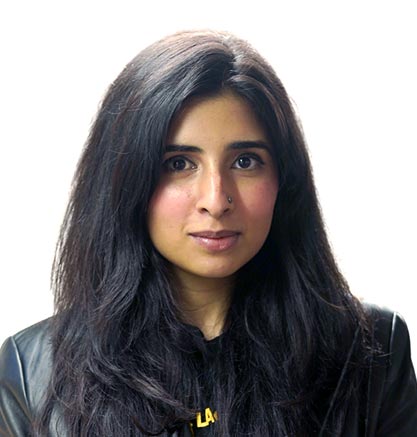-
CENTRES
Progammes & Centres
Location
International Migrants Day reminds us that while borders may be imaginary lines, the barriers to healthcare for those crossing them are all too real

Image Source: Getty
"Man is condemned to be free," wrote Jean-Paul Sartre. In exercising that freedom, millions move around uprooting lives, not only crossing geographies but cultures and politics as well. In that respect, migration is perhaps one of the most defining elements of the human story—it speaks both of the quest for hope and of the embodiment of uncertainty. Yet, in this grand dance of movement, something crucial that often falters is the ability to care for those on the move.
On the International Migrants Day, we are reminded of the challenges migrants face. While migration—both in the short and long term—is the very cornerstone of human survival, the systems entrusted with migrants’ protection and care—especially healthcare—remain inadequate. Recent events in Kolkata are a sharp microcosm of this dilemma. With a growing nationalist sentiment, some doctors and hospitals in the state of West Bengal barred Bangladeshi patients, putting medical care and geopolitical strife on a collision course. India's private hospitals have long been a lifeline for Bangladeshi medical tourists. For undocumented migrants seeking refuge, however, access to healthcare is a far more precarious affair.
With a growing nationalist sentiment, some doctors and hospitals in the state of West Bengal barred Bangladeshi patients, putting medical care and geopolitical strife on a collision course.
For decades, the Indian government has struggled with the slippery question of illegal migration, officially admitting that it has no reliable nationwide figures. The e-Migrate portal identifies 3,094 illegal recruitment agents as of October 2024, but figures on unauthorised migrants remain a guessing game—ranging from an estimate of 12 million Bangladeshi migrants in 2004, a number that was later withdrawn, to an unsupported claim of 20 million migrants in 2016. The truth must lie somewhere in this bureaucratic fog.
Global numbers tell an unrelenting story. There are more than 281 million international migrants as of 2020. According to the United Nations (UN), that figure is almost 3.6 percent of the world's population. The United Nations High Commissioner for Refugees (UNHCR) estimated the number of forcibly displaced and stateless people to be 122.6 million near mid-2024—with wars, economic inequality, and climate catastrophes emerging as prime movers. Among those displaced are millions of children and their families whose physical, mental, and social health care needs remain unmet.
This brings us to the question at the heart of this crisis: How do health systems adapt—or fail—to include those on the move? In a world that remains fiercely divided by borders, how can we reconcile the universal right to health with the realities of migration?
Closer to home, the tension between borders and health systems becomes clearer when we examine how migrants and short-term visitors navigate access to medical care. Bangladesh accounts for 50-60 percent of India’s total medical tourism. Since the political turmoil ensued in the country, revenue from medical tourism has declined. Due to restrictions on visas to Bangladeshi nationals by India since August this year, the number of patients availing healthcare in India has reportedly dropped rapidly by 80 percent. The declining numbers have been attributed to the inability of Bangladeshi nationals to access visa application centres and the reduced number of Indian diplomats in Bangladesh. While tourism from Bangladesh to India is not new, opportunities for acquiring legal residency are scant. This stems from a lacuna in Indian policy where there is little difference between those who seek better economic opportunities in India and those who are in genuine need of international protection.
India’s support for Afghanistan has been premised on the Afghan people, and India is one of the largest Asian donors to Afghanistan.
This lack of clear policy distinctions extends beyond Bangladesh, as seen in the aftermath of the United States’ withdrawal from Afghanistan, where the Afghan refugee crisis has escalated. Historically, India’s support for Afghanistan has been premised on the Afghan people, and India is one of the largest Asian donors to Afghanistan. India however, does not have tangible legislation protecting refugees (barring some minorities), including those that possess a UNHCR card, as India is not a signatory to the UN Refugee Convention. The ability of refugees to acquire basic services, such as healthcare vests is dependent on the political will of the Indian government.
Nevertheless, India houses more than 46,000 refugees and asylum seekers, predominantly from Afghanistan and Myanmar. Of these, over 21,000 have received healthcare support through UNHCR’s collaboration with the Government of India and Non-Governmental Organisations (NGOs). For instance, doctors from the All India Institute of Medical Sciences (AIIMS) in partnership with NGOs in New Delhi, have provided food, medical aid, and dental care to Afghan refugees.
The challenges faced by cross-border refugees in India mirror those seen globally, such as in Calais, northern France, where displaced populations attempt to cross the English Channel and enter the United Kingdom. Calais was previously Europe’s largest informal refugee camp but is still officially considered a transit point for asylum seekers. Temporary camps and strict deterrence policies from the European Union (EU) have not deterred migrants, but they have adversely impacted the physical and mental health of refugees, according to reports from Médecins sans frontières (Doctors Without Borders). Among the refugees, who are primarily Sudanese fleeing civil war, unaccompanied minors remain particularly vulnerable. Securitised responses from law enforcement and recent extreme weather events have further impeded access to healthcare in Calais, signifying a need to visualise the plight of displaced persons through a humanitarian perspective.
With the increase in migration, both voluntary and forced, the burden on public health systems globally is also increasing. Access to healthcare for migrants is contingent on their legal status in the host country, with many frequently denied affordable or legal access to services. Even when systems formally extend care, practical barriers include language differences, unfamiliarity with the system, heavy financial costs and institutional inadequacies such as heavy workloads and insufficient resources.
Migrants often arrive healthier than host populations at earlier stages of displacement but become more vulnerable to diseases due to inadequate healthcare access. The whooping cough outbreak in New York tied to low vaccine coverage among migrant communities is one such example which exposes the prevailing systemic deficiencies.
Migrants often arrive healthier than host populations at earlier stages of displacement but become more vulnerable to diseases due to inadequate healthcare access.
Further, systems fail to provide accessible and culturally sensitive mental health support for migrants. Lifestyle adjustments and post-migration stressors are significant psychological costs themselves. The risk of post-traumatic stress disorder, depression and anxiety was also found to be higher among refugees and asylum seekers in the EU than in host populations, especially for children and adolescents who have experienced violence and familial separation.
The conflict between nationalistic healthcare policies and international obligations under the human rights frameworks is central to these challenges. Healthcare access for migrants is determined by laws that differ significantly across regions and by their inconsistent implementation thereafter. In Canada, migrants labelled “vulnerable”, were viewed as “deserving” healthcare on humanitarian grounds, making healthcare a privilege granted rather than a fundamental right, further perpetuating inequities.
The systemic barriers to migrant healthcare are not limited only to international borders; within India, internal migration presents its own set of challenges, with the number of migrants rising from 315 million to 454 million between 2001 and 2011. Although migrant workers make substantial economic contributions in host regions, they frequently endure social isolation, work in hazardous conditions for lower pay, and face human rights violations with limited provisions for recourse.
Poor health outcomes among migrants also impact public health overall, as evidenced by the concentrated outbreaks during the pandemic.
The vulnerability of migrants in India was exposed during COVID-19, when over 10 million domestic/internal migrants were compelled to return home as a result of the lockdown, making long journeys without adequate provisions. Health concerns were increased by the ensuing concentrated epidemics in remote regions.
Poor health outcomes among migrants also impact public health overall, as evidenced by the concentrated outbreaks during the pandemic. By changing perceptions to view migration as a social determinant of health, it becomes possible to address the systemic inequities and complex pathways that impact migrants’ health. Interventions including transferable insurance coverage between states (something addressed by the Pradhan Mantri Jan Arogya Yojana (PM-JAY) in India), vaccination programs and health education could address prevalent conditions and prevent long-term public health repercussions. The Indian government introduced the draft Emigration Bill in 2019, revised in 2021, aiming to safeguard migrants’ rights. If enacted, its provisions such as compulsory insurance schemes and pre-migration health training could improve health outcomes.
As systemic barriers persist, the ethical responsibility of healthcare systems becomes a pressing challenge. According to the Indian Medical Council (Professional Conduct, Etiquette, and Ethics) Regulations 2002, the right to refuse treatment under certain conditions has been provided to doctors. This regulation protects the autonomy of doctors. The National Medical Commission (NMC) has also reiterated this principle allowing doctors to align decisions to their professional judgment and ethical considerations. However, these protections can create ethical dilemmas, mainly when refusal is based on political reasons, such as in the recent cases from West Bengal. When the ideal of neutrality clashes with the realities of strained systems, the migrant becomes collateral.
When the ideal of neutrality clashes with the realities of strained systems, the migrant becomes collateral.
The migrant is not only a receiver of care but an active participant in the societies to which they belong. To refuse them care goes against not only their dignity but also their rights. Healthcare structures need to be developed with migrants as integral participants and not as outliers. To deny migrants care is to compromise the universal principle that healthcare is a fundamental right, beyond borders and beliefs.
K.S. Uplabdh Gopal is an Associate Fellow with the Health Initiative at the Observer Research Foundation.
Nimisha Chadha is a Research Assistant with the Health Initiative at the Observer Research Foundation.
Lakshmy Ramakrishnan is an Associate Fellow with the Health Initiative at the Observer Research Foundation.
The views expressed above belong to the author(s). ORF research and analyses now available on Telegram! Click here to access our curated content — blogs, longforms and interviews.

Dr. K. S. Uplabdh Gopal is an Associate Fellow within the Health Initiative at ORF. His focus lies in researching and advocating for policies that ...
Read More +
Nimisha Chadha is a Research Assistant with ORF’s Centre for New Economic Diplomacy. She was previously an Associate at PATH (2023) and has a MSc ...
Read More +
Lakshmy is an Associate Fellow with ORF’s Centre for New Economic Diplomacy. Her work focuses on the intersection of biotechnology, health, and international relations, with a ...
Read More +